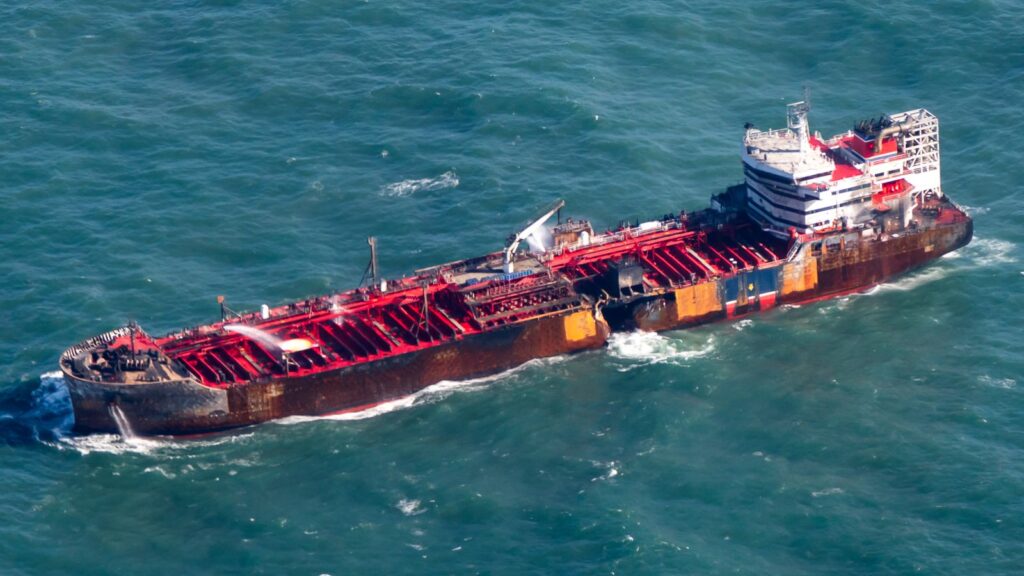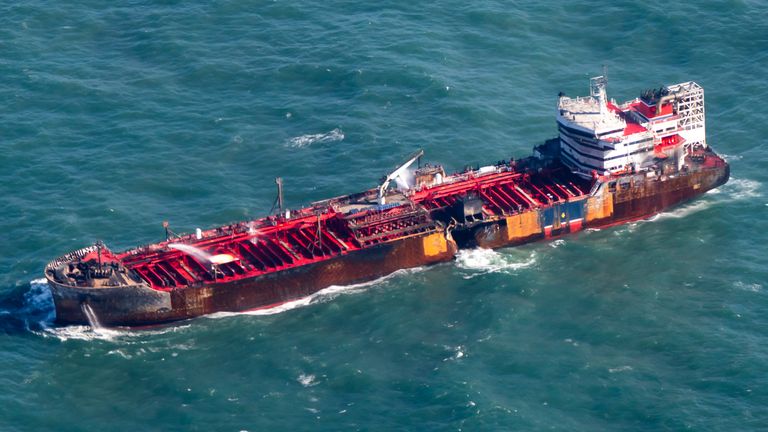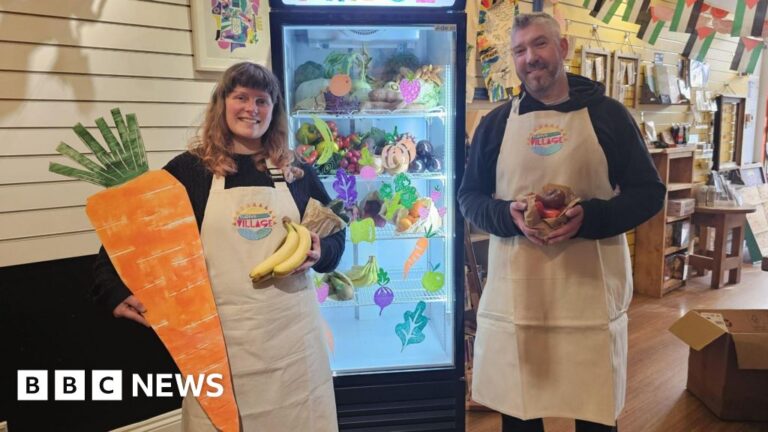

A US oil tanker that collided with a container ship in the North Sea is set to have its cargo of more than 200,000 barrels of jet fuel removed this weekend.
The Stena Immaculate and Portuguese vessel the Solong collided about 12 miles off the coast of East Yorkshire earlier this month, leaving one man missing, presumed dead.
Shipping company Crowley, which manages the Stena Immaculate, said salvage and recovery operations will move into the next phase on Saturday and Sunday.
 Image: The Stena Immaculate, a day after the collision, with a hole in its side. Pic: PA
Image: The Stena Immaculate, a day after the collision, with a hole in its side. Pic: PA
The remaining 202,485 barrels of Jet-A1 cargo will be transferred to a tanker anchored nearby, it said.
The jet fuel will then be delivered to its original destination of Killingholme in Lincolnshire, Crowley added.
The Solong arrived in Aberdeen on Friday after being towed to the city’s port.
 Image: The Solong container ship drifting in the Humber Estuary, a day after the collision. File pic: PA
Image: The Solong container ship drifting in the Humber Estuary, a day after the collision. File pic: PA
Thirty-six people were rescued from both ships following the collision on 10 March. A sailor from the Solong – named as 38-year-old Filipino national Mark Angelo Pernia – is missing and presumed dead.
The Solong’s Russian captain Vladimir Motin has been remanded in custody, charged with gross negligence manslaughter. He is due to stand trial in January 2026.
Read more:
Why did the ships crash?
Crew of tanker praised as ‘heroic’
After the jet fuel is removed, the Stena Immaculate will be towed to the Port of Tyne on the North East coast, near Newcastle, for further inspection, which is expected to take place in early April.

Following the collision, thousands of plastic pellets, known as nurdles, were released from ruptured containers on the Solong.
They began washing up on beaches on the Norfolk coast, where a clean-up operation is continuing.
The National Trust said nurdles had appeared on Brancaster Beach in Norfolk and the RSPB confirmed they had washed up at the charity’s reserve at nearby Titchwell.
While the plastic pellets are not toxic, they can be a risk to wildlife if ingested.




